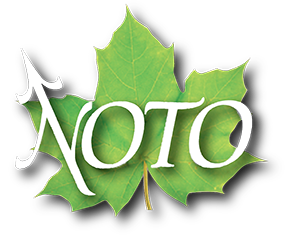CBSA has seen an increase of individuals arriving at the border with boats which are not cleaned or drained properly. In order to protect Canadian waters from invasive species, individuals may be turned away at the border if their boat, pleasure craft, and/or trailer do not meet the following conditions:
As Zebra and Quagga mussels are prohibited entry into Canada, all boats, trailers, vehicles, and other conveyances must be free of mussels, alive or dead. Travellers towing or transporting boats at all border crossings in Canada must ensure that boats and water-related equipment are free of Zebra and Quagga mussels and their larvae before entering Canada. This is done by ensuring boats and equipment are cleaned of aquatic plants, animals, mud and debris; drained of water; and dry upon arrival at the border crossing.
We suggest you share these links and information with your guests to ensure they are prepared from crossing the border with their boats.
Invasive species action plans | ontario.ca – Anglers and Boaters Action Plan
Watercraft inspection/cleaning stations near border crossings on the US side:
- Minnesota: https://apps.dnr.state.mn.us/ais_decon_sites
- Michigan: https://www.watershedcouncil.org/mobo.html
Department of Fisheries and Oceans Pamphlet
Further Information:
Under Ontario Regulation 354/16, it is mandatory to clean and drain watercraft (e.g. a boat) and watercraft equipment when transporting them overland in Ontario. When removing a watercraft from a body of water, boaters are required to take reasonable precautions to remove any aquatic plants (weeds), animals, and algae from any boat, boat equipment, vehicle, or trailer before transporting a boat or boat equipment overland.
Boaters are also required to remove or open drain plugs to allow water to drain from the boat or boat equipment before transportation. Boaters are required to ensure their boat, boating equipment, vehicles, or trailers are free of any aquatic plants, animals, and algae before placing a watercraft in any body of water in Ontario. It is illegal to place a boat, boating equipment, or any vehicle or trailer into any body of water if there are any aquatic plants, animals or algae attached to it. For more information on Ontario’s requirements, click here.
When boats, trailers, vehicles, and conveyances arriving at the border are suspected to be contaminated, enforcement authorities will be notified to inspect and/or decontaminate the equipment. The CBSA may communicate instructions by enforcement authorities to travellers requiring them to take their equipment to watercraft inspection stations within Canada, or have the person be turned away at the border.
Watercraft inspection stations must be approved for mussel removal by DFO and/or provincial or territorial authorities. If decontamination is not operationally feasible at time of importation, travellers’ equipment may be held and turned over to provincial authorities for a quarantine period, or refused entry by enforcement authorities and directed to a decontamination station in the U.S. before returning to Canada.
Note: A car wash is not an approved method of decontaminating an infested boat as the water temperatures are not high enough to kill Zebra and Quagga mussels. Failure to kill mussels can result in spreading them to the facility’s infrastructure, to municipal infrastructure or to a water body through a drainage system, such as a storm drain. Diseases, such as whirling disease, could be spread to new watersheds via the use of car washes. Instead decontamination must take place on land and in a location that ensures water and material being removed does not drain into a water body or drainage system such as a storm sewer or roadside ditch.



